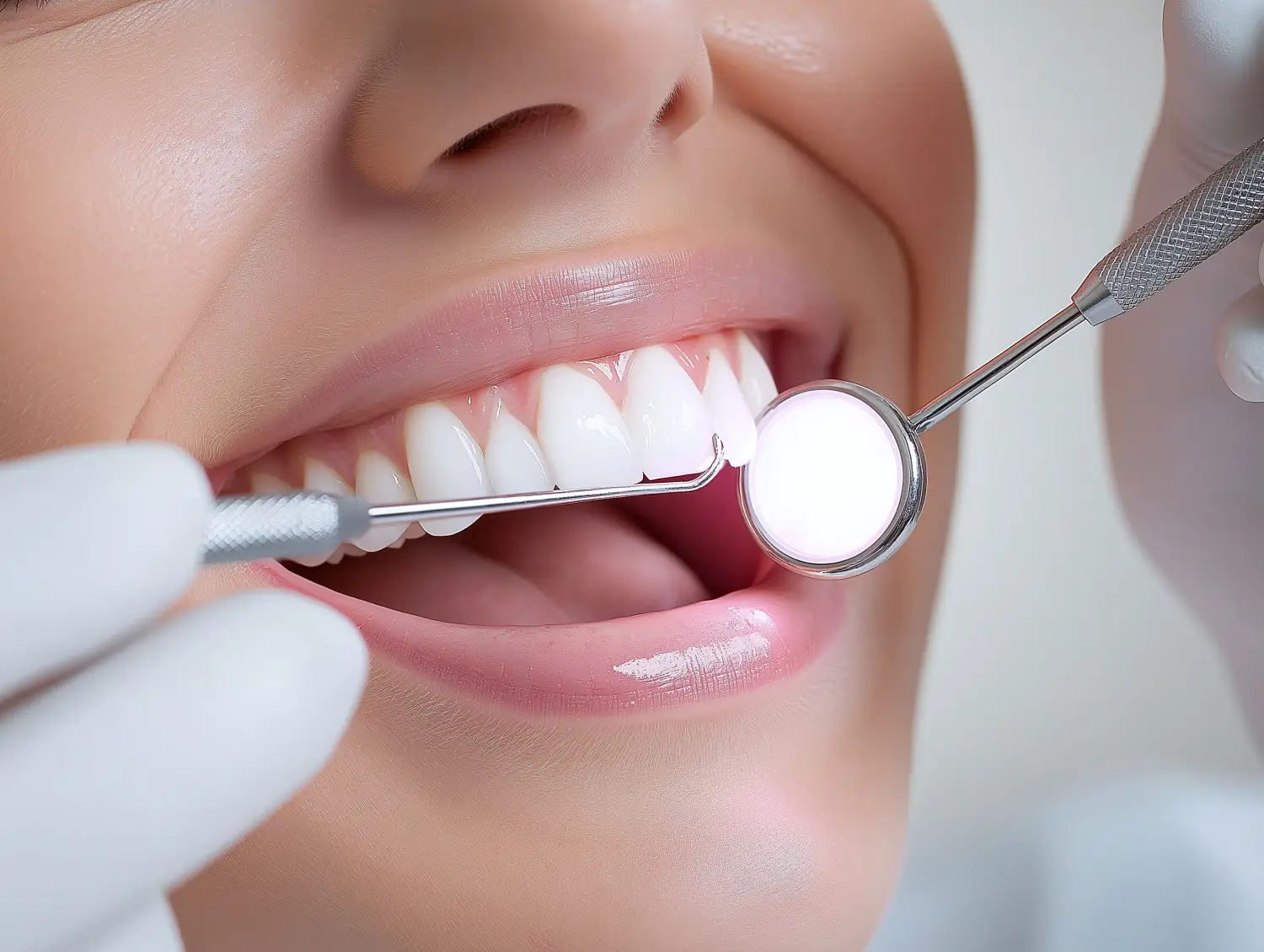
Tooth Sensitivity: Why Does It Happen, and What Can I Do About It?
We’ve all been there. We’re enjoying a night out with friends, and you’ve just had a fantastic meal. You decide to splurge a little and get dessert. Your apple pie topped with vanilla bean ice cream arrives. You dive in, and just as the ice cream hits your mouth, you feel a sharp pain. Ouch! Tooth sensitivity. Not exactly the foodie experience you were craving.
Over the past couple weeks, you’ve been noticing teeth sensitivity when eating or drinking hot or cold foods or drinks. You chalked it up to the recent cavity you got filled and figured it would go away on its own. Now what?
While tooth sensitivity in some cases is a temporary side effect after a dental treatment like a root canal or filling, if it lingers, it’s crucial to get it checked out, says our own Dr. Marcano here at Orlando Center for Cosmetic Dentistry. In this blog, Dr. Marcano dives deep into why tooth sensitivity happens and how it’s treated.
Tooth anatomy explained
A great place to start this conversation is to do a quick refresher on the anatomy of a tooth. Many of us are familiar with the hard outer layer of our teeth, called enamel. Enamel has two main purposes – it protects the innermost layers of the tooth, and it gives teeth that beautiful pearly white glow.
The layer just under the enamel is dentin. Dentin and enamel protect the more sensitive third layer called dental pulp. Unlike enamel and dentin, the pulp is made of soft tissue and houses blood vessels and nerves. These nerves are what are activated during episodes of tooth sensitivity.
Common causes for tooth sensitivity
Treating tooth sensitivity is all about resolving the underlying issue. Generally, tooth sensitivity is a result of exposed tooth roots or worn-out enamel. Essentially some conditions comprised the first two layers of the tooth. Since there are a variety of possible causes of tooth sensitivity, which may result in more serious symptoms and complications, discuss lingering tooth sensitivity with your dental provider so that you can get proper treatment.
Cavities
By its very definition, a cavity is an intrusion of dental enamel. If undiagnosed and untreated, as the cavity gets larger, it often results in tooth sensitivity, ranging from mild or sharp pain triggered by drinking or eating something sweet, spicy, or hot or cold.
Cracked, damaged, and worn-down enamel
Similarly, damaged teeth resulting from trauma or teeth grinding, which cause chipped, cracked, or broken teeth, can cause tooth sensitivity. Like in the case of cavities, enamel is compromised, which sets up a perfect storm for bacteria from plaque to enter the pulp, causing sensitivity and inflammation.
Issues with your gums
Origins of teeth sensitivity aren’t regulated just to your teeth, though. In some cases, gum issues are at the root of tooth sensitivity. Sometimes the culprit is periodontal issues or gum disease. In this scenario, inflamed, sore gum tissue triggers failing ligaments, which lead to exposed tooth roots.
A similar scenario may happen when receding gums either caused by gum disease, natural aging, or a genetic condition that thins gum tissue. The way this plays out is that regardless of the underlying condition, the gum tissue pulls away from your teeth and ultimately exposes tooth roots leading to tooth sensitivity.
Issues with teeth whitening
Another thing that can lead to tooth sensitivity is misadventures in teeth whitening. Although tooth sensitivity can be a side effect of teeth whitening, issues arise when recommended instructions either about treatment time or the potency of the whitening agent are deviated as well as ill-fitting whitening trays.
Here at Orlando Center For Cosmetic Dentistry, we offer patients in-office chair-side whitening services using the industry-leading Philips ZOOM! whitening system. Patients sit back and let us do all the work. Over a single appointment, we safely whiten teeth up to about eight shades.
If you've been experiencing issues with tooth sensitivity, contact us at Orlando Center For Cosmetic Dentistry to schedule an appointment. We’ll do a thorough dental exam and talk with you about your issue so that we can properly diagnose and treat the problem. Click the online booking tool or call the office today at 407-269--5024. We’ll help you get back to eating all your favorite drinks and foods without tooth sensitivity.
Related Posts

Welcome to Orlando Center for Cosmetic Dentistry

Teeth Cleaning Aftercare Tips

What Are Dentures? Everything You Need to Know
%20copy.jpg)
Schedule your visit today
We’re here to help you achieve a healthier, more confident smile with precision care and no pressure. Let’s get you started.
